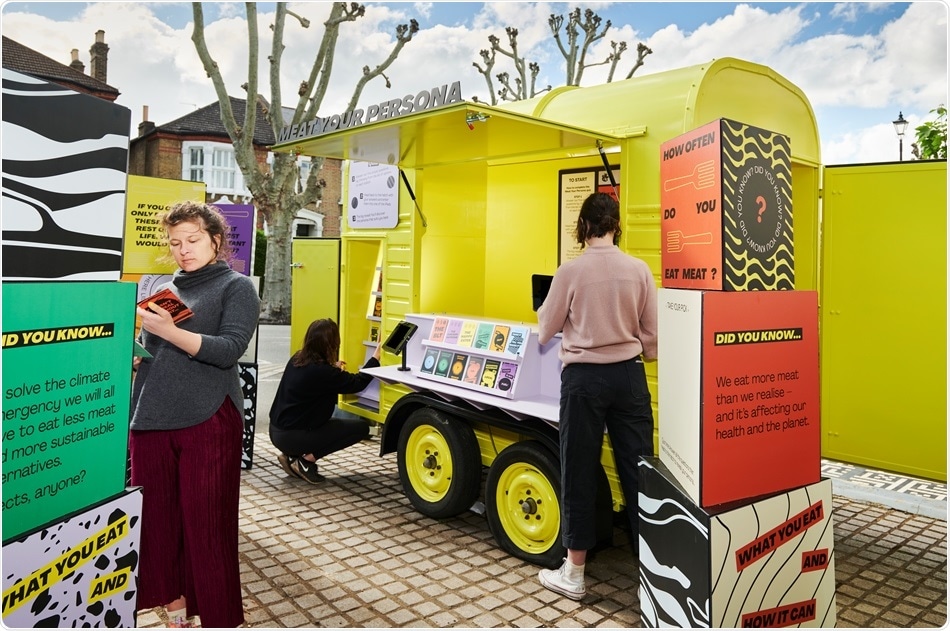'Meat Your Persona' is a new touring installation designed to get the UK talking about eating meat, its environmental impact, and how much meat is actually good for you. Drawing on research from LEAP (Livestock Environment and People) at the University of Oxford, the pop-up initiative has been created by public engagement consultancy The Liminal Space and funded by Wellcome.

Image Credit: Oxford University
Meat Your Persona launches on Friday 28th May in Cardiff at St David’s Shopping Centre, and will then travel to Leeds, Newcastle, Blackpool, Glasgow to spark conversations with members of the public about the impact of eating too much meat on the environment and on individuals’ health.
Visitors to the installation will find a series of intriguing structures, each housing part of an interactive quiz where they can discover which one of the six ‘meat personas’ they are: from 'Part-time Carnivore' to ‘Adventurous Eater', before learning how to make their eating habits better for their own health and the health of the planet. LEAP researchers will be on-hand to share the latest insights on meat production and consumption and there will also be opportunities for the public to share their views and to get involved with LEAP’s ongoing research, including a study of people trying to reduce their meat intake.
Reducing our meat consumption is a crucial way each of us can lessen our impact on the planet, and at the same time potentially reduce our risk of certain diseases. But public understanding and mobilization around the topic is lacking and discussing dietary choices can make people feel blamed or shamed. By using an approachable, personal lens to view this global problem, Meat Your Persona encourages visitors to reflect on their own eating habits and discover the changes most relevant to them and their lifestyles, as well as introducing them to the wider structural changes that need to take place in the food system.”
Amanda Gore, Director, The Liminal Space
Another important part of the project is to listen carefully to the points of view of the public to better understand where they feel change needs to happen and how they feel about making a change themselves. As the installation tours it will be collecting thoughts and comments from people across the country and will be sharing these back with policy and decision makers in order to help inform future food policy.
Susan Jebb, Professor of Population and Diet Health, co-director of LEAP, commented, “ ‘Meat Your Persona’ will provide our researchers with invaluable insights into how people in the UK are thinking around meat consumption and hopefully encourage individuals' to think more deeply about the impact their food choices have on our environment. This is often a difficult conversation to have, however we feel The Liminal Space has created a positive and engaging way to connect the public to our research.”
LEAP research aims to contribute to an evidence-based discussion on the future of meat production and consumption: how frequently it should be eaten, the current understanding of responsible sources of meat; and its environmental and health impact. Some key research findings include:
- Even if we cut all fossil fuel emissions immediately, we still wouldn’t reach climate change targets without also cutting food emissions.
- Eating high quantities of processed and unprocessed meat is associated with higher risks of colorectal cancer and ischemic heart disease among other diseases
Meat Your Persona has been designed to help disseminate this research amongst the general public, as well as to help shape future research in this area, so it answers the most pressing questions which are important to the public. The installation launches in tandem with Meat the Future – a joint exhibition from LEAP and the Oxford University Museum of Natural History, presenting cutting edge research on the environmental and health impacts of eating meat.